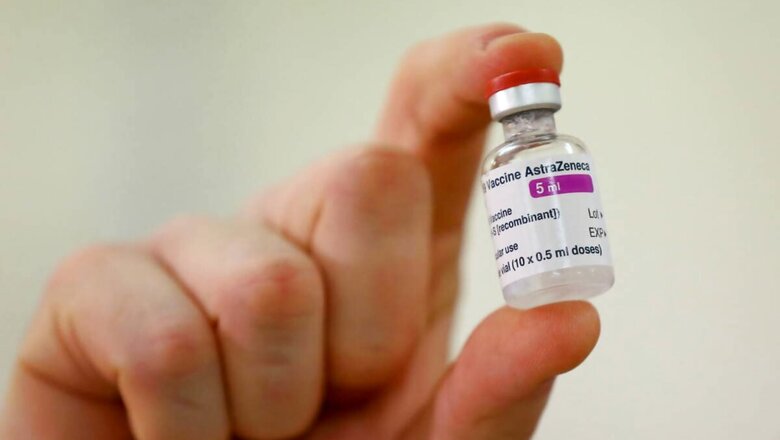
views
News around the Oxford-AstraZeneca vaccine seems to get worse by the day. And for no country more than for India, which is committed heavily to this particular vaccine through a massive production arrangement with the Serum Institute of India (SII).
New and worrying limits to the efficacy of this vaccine have surfaced over the weekend after it was found nearly ineffective against a new variant of the virus that has come to be known as the South Africa variant. This variant originated in South Africa – or at the least was first identified in South Africa – and travelled to Britain besides several other countries. And now, it has been found in communities in Britain not linked to travel from South Africa.
ALSO READ | After Germany, France Says No Oxford-AstraZeneca Virus Vaccine for People Over 65
A study whose findings were reported Sunday found that the AstraZeneca vaccine had only limited effect in countering mild or moderate illness resulting from the South Africa variant. Any protection against more serious illness from the virus has not been tested. The study was carried out among young and healthy adults.
AstraZeneca has held out hope that the present vaccine may still prevent any serious illness resulting from this new variant of the virus. Oxford and AstraZeneca have announced that they are developing an updated vaccine to protect against the South Africa variant. That is expected to be ready only later this year.
Better success for the Oxford vaccine has been claimed against what has come to be called the UK variant of the virus.
Early research has suggested that the Pfizer-BioNTech and Moderna vaccines offer more protection against the South Africa variant. Two new vaccines being developed by Novavax and Janssen also have shown better results against the South Africa variant.
Six Problems
The Oxford vaccine had appeared the biggest promise against the virus since the pandemic broke last year. Now none seems more controversial, or less convincing, on the record so far.
Britain itself is relying on the Oxford vaccine less heavily than India. It approved Pfizer first, and now appears to be rolling that one out faster than the Oxford vaccine, which is widely regarded across Britain as a poor and less preferable cousin to the rest. The Oxford team is now holding out new promises looking ahead but six major problems have been flagged around the Oxford vaccine.
1. Other vaccines are reporting about 90 percent success while the Oxford trial showed 62 percent success. This effectively means a two in five chance you can get the vaccine and still get the virus, though studies show the infection would be less acute.
2. The Oxford trial claimed 90 percent success through a part of the trial where a smaller dosage was given by mistake. Just what was Oxford doing making a mistake like that, in a trial such as this, remains unclear. After all, few trials have mattered more.
3. That 90 percent claim came from a better result with no more than three individuals. Oxford averaged the results out to claim 70 percent success. Those claims of 90 percent and of 70 percent were both rejected by the MHRA, the Medicines and Healthcare Regulatory Authority whose task it is to approve vaccines in Britain.
4. And now a huge ethical issue has come up – it turns out that Oxford did not tell its volunteers through the trial that it made a mistake in giving them an incorrect dosage. It suggested in a note that this may have been a part of the plan, in blurry language intended clearly to cover up its mistakes rather than admit them openly.
5. Not least, Oxford never tested the most vulnerable. Its trials were conducted almost entirely in the 18-55 group, in which the overwhelming majority recover naturally. And so now France and Germany are refusing to use this vaccine on anyone above 65 on the grounds that it has never been tested among the elderly – who need it most.
6. To add to all of this, now results show it offers only limited protection against the South Africa variant of the virus.
Two Promises
This week, the under-pressure Oxford team held out two new promises. One, while offering some protection and lessening the severity of an infection, it also reduces transmissibility, by about two-thirds. That difference is important; a vaccinated person may be protected, but still may infect others; vaccines can protect the lungs but the virus can persist in the upper respiratory tract. Second, it plans to develop an updated vaccine to protect against emerging new variants of the virus. It hopes to have this in place later this year.
Read all the Latest News, Breaking News and Coronavirus News here




















Comments
0 comment